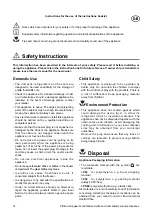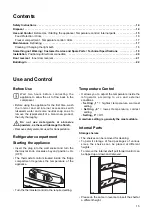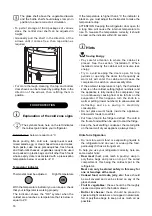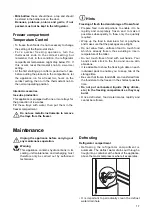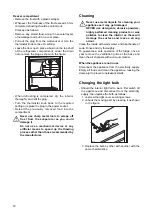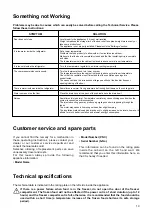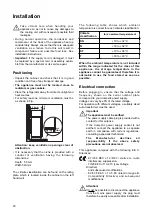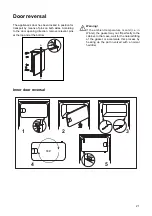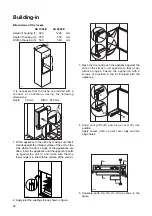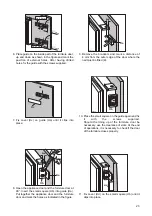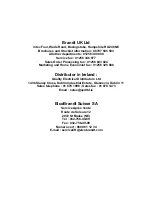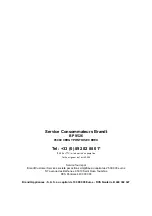
20
Installation
Take utmost care when handling your
appliance so as not to cause any damages to
the cooling unit with consequent possible fluid
leakages.
¥ During normal operation, the condenser and
compressor at the back of the appliance heat up
considerably. Always ensure that there is adequate
ventilation as a failure to do this will result in
component failure and possible food loss. See
installation instructions.
¥
Important:
if the supply cord is damaged, it must
be replaced by a special cord or assembly availa-
ble from the manufacturer or its service agent.
Positioning
¥ Unpack the cabinet and check that it is in good
condition and free of any transport damage.
¥
The appliance must not be located close to
radiators or gas cookers.
¥ Place the refrigerator away from direct sunlight and
heat sources.
¥ For safety reasons, minimum ventilation must be
as shown in Fig.
Attention: keep ventilation openings clear of
obstruction.
¥ It is necessary that the niche is provided with a
conduct of ventilation having the following
dimensions:
Depth 50 mm
Width 540 mm
The climate classification can be found on the rating
plate, which is located inside the cabinet on the left
hand wall.
The following table shows which ambient
temperature is correct for each climate classification:
Climate
classification
SN
+10 to +32¡C
+16 to +32¡C
+18 to +38¡C
+18 to +43¡C
N
ST
T
for an ambient temperature of
50 mm
min.
200 cm
2
200 cm
2
min.
D526
When the ambient temperature is not included
within the range indicated for the class of this
appliance, the storage temperature in the
appliance cannot be guaranteed; therefore it is
advisable to use the food stored as soon as
possible.
Electrical connection
Before plugging in, ensure that the voltage and
frequency shown on the serial number plate
correspond to your domestic power supply.
Voltage can vary by ±6% of the rated voltage.
For operation with different voltages, a suitably sized
auto-transformer must be used.
Important
The appliance must be earthed.
The power supply cable plug is provided with a
contact for this purpose.
If the domestic power supply socket is not
earthed. connect the appliance to a separate
earth in compliance with current regulations,
consulting a specialist technician.
The Manufacturer declines all
responsibility if the above safety
precautions are not observed.
This appliance complies with the following E.E.C.
Directives:
- 87/308 EEC of 2/6/87 relative to radio
interference suppression.
- 73/23 EEC of 19.2.73 (Low Voltage
Directive)
and subsequent modifications.
- 89/336 EEC of 3.5.89 (Electromagnetic
Compatibility Directive) and subsequent
modifications.
Attention!
It must be possible to disconnect the appliance
from the mains power supply; the plug must
therefore be easily accessible after installation.


